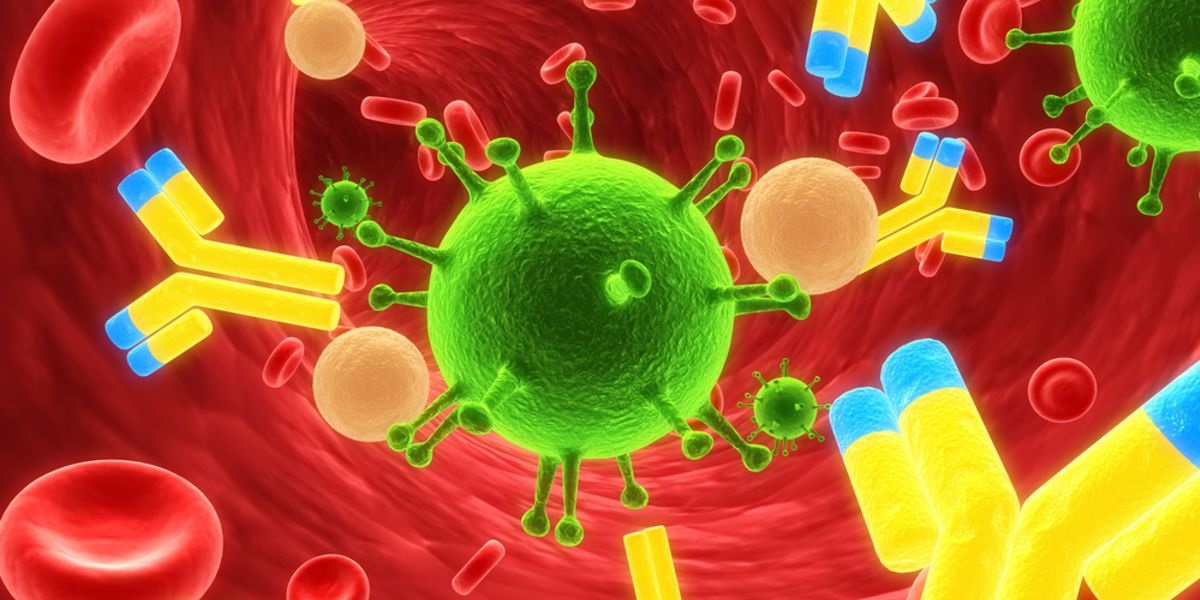For hundreds of years, immunization has been one of society's most elegant and dependable methods of disease prevention. Vaccines have been developed for infections ranging from measles to HPV. Many of us get vaccinated to protect ourselves against seasonal illness, or before traveling internationally. Vaccination is safe. It is dependable. It works.

Sixty million infections, 25 million deaths, untold millions of orphaned children and three decades later, there is still no vaccine for HIV. But now, a team of scientists at Caltech has discarded the vaccination model in favor of a revolutionary approach to HIV prevention — and it's already been shown to provide mice with 100% protection against transmission of the deadly virus.
The researchers have named the new method of prevention Vectored ImmunoProphylaxis, or "VIP" for short. What's unique about VIP is that it involves gene therapy. In this case, the scientists have introduced genes that code for antibodies, that are capable of neutralizing HIV infection, into the muscle cells of mice.
The development of VIP was led by David Baltimore, a Nobel laureate, virologist and HIV researcher at Cal Tech. Baltimore and his colleagues have outlined the results of the federally funded study in the latest issue of Nature.
"[Gene therapy] is something way out of the ordinary, and it's perfectly reasonable to say that there's no reason to do it if there's an alternative [i.e. a vaccine]," explained Baltimore in an interview with Nature News. "But if there's no alternative — and that's where we're at today — then we should be thinking of new ways to protect people."
We'll get to the mechanism behind VIP in a moment — for now it's sufficient to understand that the treatment's hallmark feature is that it effectively removes steps from the body's typical immune response. Don't remember how immune responses work? Here's a quick and dirty recap, in the context of immunization:
 Traditional vaccines work by exposing your immune system to a dead or weakened form of a virus, allowing your body to build up its own natural defenses. This so-called adaptive immune response typically involves the production of special proteins called antibodies; and these antibodies are specifically designed to latch onto pathogens that resemble the ones in the vaccine. This way, the next time your immune system encounters the real deal, it's got antibodies at the ready that can latch onto the invading virus and tag it for extermination.
Traditional vaccines work by exposing your immune system to a dead or weakened form of a virus, allowing your body to build up its own natural defenses. This so-called adaptive immune response typically involves the production of special proteins called antibodies; and these antibodies are specifically designed to latch onto pathogens that resemble the ones in the vaccine. This way, the next time your immune system encounters the real deal, it's got antibodies at the ready that can latch onto the invading virus and tag it for extermination.
It just so happens that scientists have actually identified a number of antibodies that are capable of neutralizing HIV. The only problem is that they've had a hell of a time creating a vaccine that can get people's immune systems to actually create these antibodies on their own. No antibodies, of course, means no protection. That's where VIP comes in.
VIP works by providing the body with genetic instructions on how to create these protective antibodies independently of the body's natural immune system. It does this by incorporating the DNA that codes for these antibodies directly into the body's cells. Baltimore and his colleagues demonstrated VIP's efficacy by delivering the DNA of two HIV-neutralizing antibodies — known as b12 and VRC01 — into muscle cells in the legs of mice. Once the genetic code for the antibodies was incorporated into the muscle cells' genomes, it could instruct the cells to synthesize these antibodies and distribute them throughout the blood stream.
The end result, explains researcher Alejandro Balazs, lead author of the study, is an effect very similar to a vaccine; the difference is that with VIP, you never call on the immune system to do any of the work. "Normally, you put an antigen or killed bacteria or something into the body, and the immune system figures out how to make an antibody against it," says Balazs. "We've taken that whole part out of the equation."
And so far, results have been nothing short of extraordinary.
 A single VIP treatment was enough to induce lifelong expression of the b12 and VRC01 antibodies in high enough concentrations to provide the mice with full protection from HIV infection, even when the mice were administered doses of HIV much, much higher than a natural infection.
A single VIP treatment was enough to induce lifelong expression of the b12 and VRC01 antibodies in high enough concentrations to provide the mice with full protection from HIV infection, even when the mice were administered doses of HIV much, much higher than a natural infection.
"We expected that at some dose, the antibodies would fail to protect the mice, but it never did — even when we gave mice 100 times more HIV than would be needed to infect 7 out of 8 mice," explains Balazs. "All of the exposures in this work were significantly larger than a human being would be likely to encounter."
Of course, the researchers acknowledge that the step from mice to humans is not an insignificant one. "We're not promising that we've actually solved the human problem," says Baltimore. "But the evidence for prevention in these mice is very clear."
"If humans are like mice, then we have devised a way to protect against the transmission of HIV from person to person. But that is a huge if, and so the next step is to try to find out whether humans behave like mice."
Historically speaking, explains Baltimore, humans don't behave like mice — at least not in the context of vaccine research. But remember: VIP is not a vaccine. The linchpin component of the VIP mechanism is the incorporation of antibody-coding DNA into the body's cells — antibodies that we already know work to neutralize HIV.
"In typical vaccine studies, those inoculated usually mount an immune response — you just don't know if it's going to work to fight the virus," explains Balazs. "In this case, because we already know that the antibodies work, my opinion is that if we can induce production of sufficient antibody in people, then the odds that VIP will be successful are actually pretty high."
Baltimore and Balazs hope to begin human trials within the next few years.
For more information about this novel method of HIV-transmission prevention, see the video featured here, which includes further interviews with Baltimore and Balazs.

